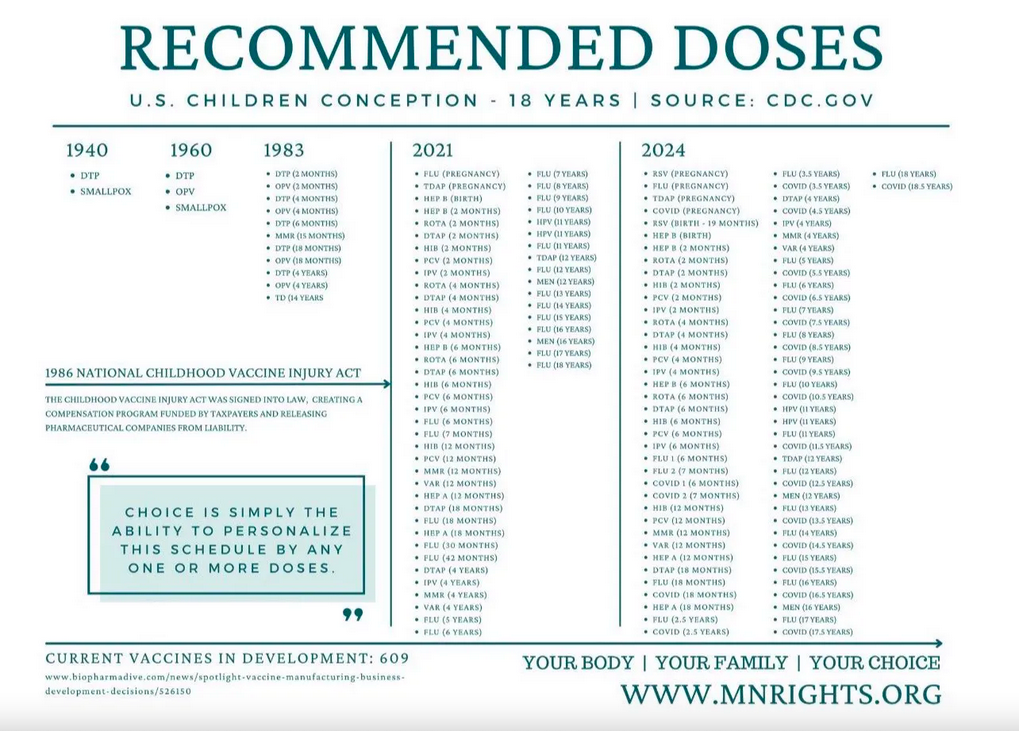
Children are now set to receive an unprecedented 32 injections by the age of 2 and over 70 by 18, all without the requirement for long-term, placebo-controlled trials.
On October 24, 2024, the CDC, under the leadership of Director Mandy Cohen, officially adopted the new 2025 Immunization Schedule, marking a significant shift in childhood vaccination requirements. Approved by the Advisory Committee on Immunization Practices (ACIP), the revised schedule dramatically increases the number of vaccinations children will receive in their early years.
The most notable change is the recommendation for children to receive 32 injections by age 2, up from previous schedules. By the time children reach 18, they will be expected to have received more than 70 vaccinations.

BYPASS THE CENSORS
Sign up to get unfiltered news delivered straight to your inbox.
Latest Video

This new schedule has sparked debate across the healthcare and parental communities, as it expands the scope of childhood immunization far beyond what has been typical in the past.

One of the most controversial aspects of the expanded schedule is the lack of long-term, placebo-controlled trials to assess the safety and effectiveness of this aggressive vaccination approach.
Such a rapid increase in childhood vaccinations should be accompanied by more robust scientific studies to ensure that the long-term health effects on children are thoroughly understood.

The CDC and ACIP have justified the expansion, citing the need to respond quickly to emerging health threats such as new strains of flu, respiratory viruses, and other infectious diseases that could impact children.
The new schedule also includes updated guidelines for several vaccines, including those for meningitis, whooping cough, and the seasonal flu.
In a statement released after the schedule was adopted, Director Cohen emphasized the importance of protecting children and preventing the spread of vaccine-preventable diseases.
“This updated immunization schedule reflects our ongoing commitment to safeguarding the health of our nation’s children,” Cohen said. “Vaccines are a critical tool in our public health arsenal, and this updated schedule helps ensure that children are protected from serious diseases that can have lifelong consequences.”
While public health officials argue that the increased vaccinations will lead to a decrease in preventable diseases, the new schedule has generated significant concern among parents, health professionals, and advocacy groups.
Especially considering childhood hyper-vaccination is contributing to the skyrocketing autism rates.

Many critics are also are questioning the efficacy of so many vaccines administered at such an early age, particularly without the long-term studies typically required for new medical interventions.
“Children are being subjected to an unprecedented number of vaccines before they even hit their second birthday,” said Dr. Jane Smith, a pediatrician and vocal critic of the new schedule.
“There are no long-term studies showing the cumulative effects of these vaccines over the course of a child’s life. This should give us pause.”
Source link

